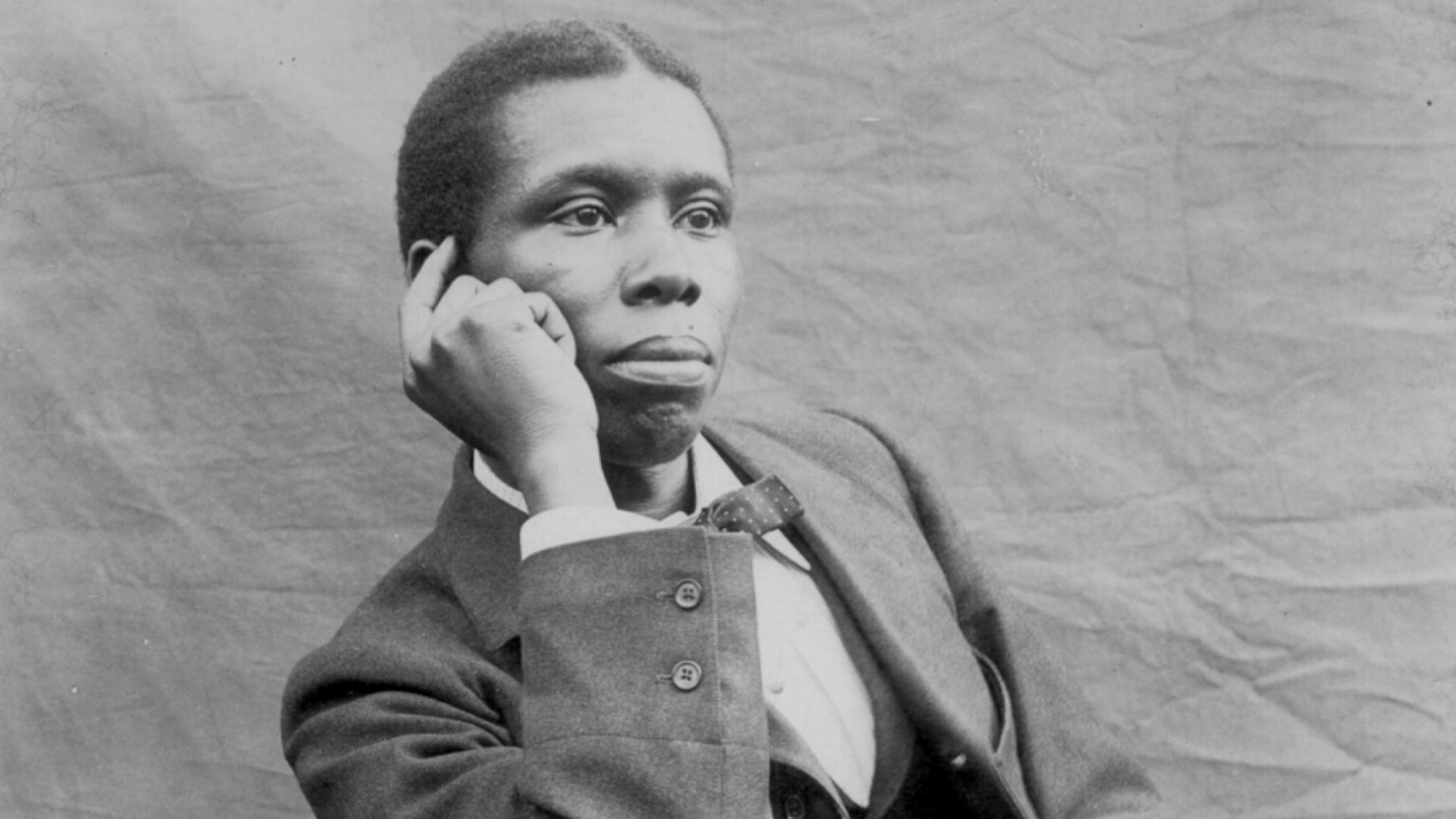A Banjo Song Poem by Paul Laurence Dunbar
A Banjo Song
OH, dere's lots o' keer an' trouble
In dis world to swaller down;
An' ol' Sorrer's purty lively
In her way o' gittin' roun'.
Yet dere's times when I furgit 'em, —
Aches an' pains an' troubles all, —
An' it's when I tek at ebenin'
My ol' banjo f'om de wall.
'Bout de time dat night is fallin'
An' my daily wu'k is done,
An' above de shady hilltops
I kin see de settin' sun;
When de quiet, restful shadders
Is beginnin' jes' to fall, —
Den I take de little banjo
F'om its place upon de wall.
Den my fam'ly gadders roun' me
In de fadin' o' de light,
Ez I strike de strings to try 'em
Ef dey all is tuned er-right.
An' it seems we're so nigh heaben
We kin hyeah de angels sing
When de music o' dat banjo
Sets my cabin all er-ring.
An' my wife an' all de othahs, —
Male an' female, small an' big, —
Even up to gray-haired granny,
Seem jes' boun' to do a jig;
'Twell I change de style o' music,
Change de movement an' de time,
An' de ringin' little banjo
Plays an ol' hea't-feelin' hime.
An' somehow my th'oat gits choky,
An' a lump keeps tryin' to rise
Lak it wan'ed to ketch de water
Dat was flowin' to my eyes;
An' I feel dat I could sorter
Knock de socks clean off o' sin
Ez I hyeah my po' ol' granny
Wif huh tremblin' voice jine in.
Den we all th'ow in our voices
Fu' to he'p de chune out too,
Lak a big camp-meetin' choiry
Tryin' to sing a mou'nah th'oo.
An' our th'oahts let out de music,
Sweet an' solemn, loud an' free,
'Twell de raftahs o' my cabin
Echo wif de melody.
Oh, de music o' de banjo,
Quick an' deb'lish, solemn, slow,
Is de greates' joy an' solace
Dat a weary slave kin know!
So jes' let me hyeah it ringin',
Dough de chune be po' an' rough,
It's a pleasure; an' de pleasures
O' dis life is few enough.
Now, de blessed little angels
Up in heaben, we are told,
Don't do nothin' all dere lifetime
'Ceptin' play on ha'ps o' gold.
Now I think heaben'd be mo' homelike
Ef we'd hyeah some music fall
F'om a real ol'-fashioned banjo,
Like dat one upon de wall.
I agree with Ray. I know these days there is criticism and/or embarrassment that Dunbar chose often to write in what was then called dialect (now we would say ebonics) and that his transcription of the dialect was sometimes inaccurate (after all he was not a modern linguist or phonetician) . But one should remember that this was an era when the US was searching for its own unique voice in poetry, and one of the paths sometimes taken was that of local American dialects (e.g., James Whitcomb Riley) . Dunbar was recognizing and honoring the language of his black brothers and sisters in these poems. They were loved and recited in both white schools and black. The number and quality of his poems are simply astonishing, given his very short life. He is a forerunner of James Weldon Johnson and then Langston Hughes, Countee Cullen, Claude McKay, and the Harlem Renaissance. We should honor him and share his works.
46 votes, and no comments? ! is there something wrong with this site? this poem is awesome! -
This poem has not been translated into any other language yet.
I would like to translate this poem
A beautiful, sonorous rendition.